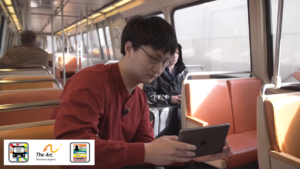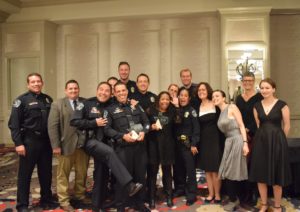Spotlight: Giving Schools and Students the Tools to Succeed With The Arc of Philadelphia
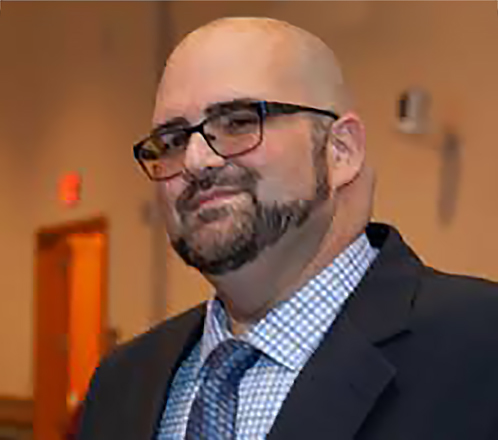 Although federal laws describe the services and supports available to students with disabilities, it is not always easy for students and parents to advocate on their own for appropriate educational services, so many families seek help from a special education advocate. Chapters of The Arc are well positioned to meet this need. Through advocacy, resources, and training, The Arc of Philadelphia is working hard to improve their local school system and ensure ALL students are set up to succeed. We spoke to the chapter’s Executive Director, Joe Mancini, about the work required to make this effort successful and how others can do the same.
Although federal laws describe the services and supports available to students with disabilities, it is not always easy for students and parents to advocate on their own for appropriate educational services, so many families seek help from a special education advocate. Chapters of The Arc are well positioned to meet this need. Through advocacy, resources, and training, The Arc of Philadelphia is working hard to improve their local school system and ensure ALL students are set up to succeed. We spoke to the chapter’s Executive Director, Joe Mancini, about the work required to make this effort successful and how others can do the same.
Chapters of The Arc are well-positioned within their communities to make a difference in the education system. Tell us about the work The Arc of Philadelphia is doing in this area.
Our chapter provides educational advocacy for students in Early Intervention Programs through graduation. We serve approximately 80 families in a school year with support during the IEP process and provide countless others with resources. We also provide adult advocacy for individuals above the age of eighteen who are no longer enrolled in school.
Along with our Advocacy Services, The Arc of Philadelphia provides a variety of trainings to individuals, families, and providers on a several different topics. Self-advocacy, the IEP process, ABLE accounts, and tech coaching are some of the many trainings provided through The Arc. The Arc also works with the Philadelphia School district to hold a one-day conference on self-advocacy for transition age students in the district. This conference is free and provides a host of trainings on self-advocacy, technology, healthy living, money management, employment, healthy relationships, and secondary education.
The Arc has built a tech showroom that highlights technology to encourage transition age youth to consider independent living when transitioning from high school. We showcase the technology that would assist this age group to work towards independent living while teaching them the self-advocacy skills to get these goals implemented into their support plans.
How does a successful education advocate balance being a strong supporter to families while also building relationships with the school officials in systems they’re working to improve?
This is a very difficult task. An advocate has to manage achieving the best for the families and individuals we are serving while maintaining a relationship with a school that we will more often than not have to work with again. It starts with remaining professional and not allowing yourself to become emotional when working with all parties. We often see some very upsetting situations when advocating but keeping a steady hand and working professionally through the process will allow us to be seen as a partner and not a punishment to the schools. We must not be seen as biased and ensure that we are at the table to make sure our individuals voice is being heard and that the answers to the best supports do not lie just with the family or just with the school but with the entire team. Our goal as advocates is to work ourselves out of a job by transferring the needed skills to the people we serve. If we do that and allow the meetings to be run by the families, our relationship with the schools has a better chance to remain positive.
You recently completed The Arc@School’s advocacy curriculum training. How has it strengthened your work?
The breath of information we received in this training has increased all members of our team’s overall knowledge or the rights and responsibilities of everyone in the advocacy process. We have a variety of experience levels in our advocacy department and this training has increased the base knowledge of everyone on our team. All members of our team now feel better equipped to serve our families because of the increased knowledge this training brings.
What advice do you have for chapters interested in building a special education advocacy program? Where should they start?
Start with identifying the right members of your team. Finding a staff that has a balance of professional and personal experience is extremely important in building an advocacy team. Equally as important is having the right training for your team. Allowing an individual to shadow an experienced advocate for some time will greatly reduce the learning curve for such a difficult position. Trainings like The Arc’s Advocacy Curriculum will also act as a valuable support for anyone thinking of building an advocacy department at their chapter.


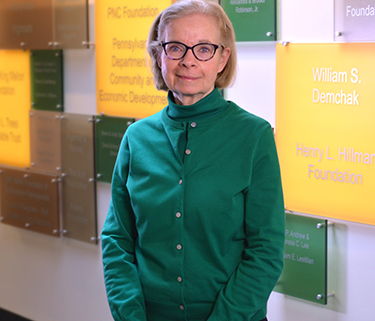
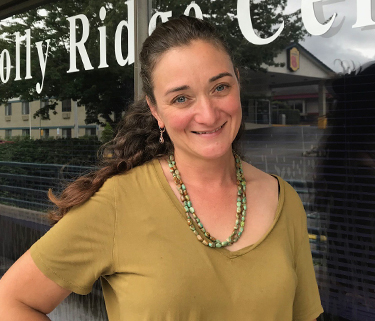
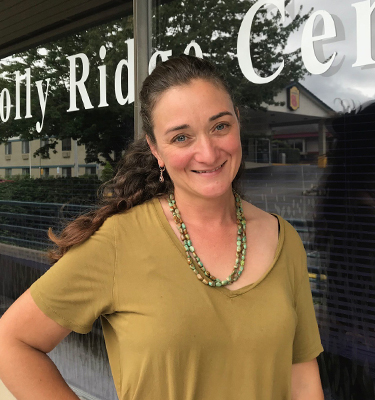
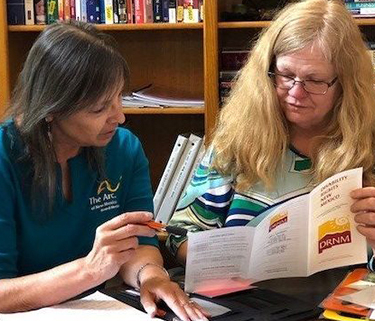
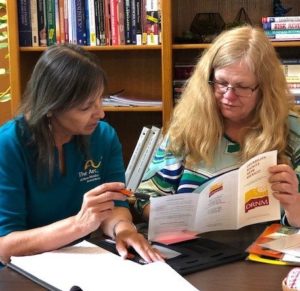 In communities across the country, a silent epidemic plagues the disability community. People with intellectual and developmental disabilities (IDD) are seven times more likely than the rest of the population to experience sexual violence. Despite this, understanding of how to effectively provide services for people with IDD remains elusive, and survivors often find themselves unable to get the help they need in their communities. Organizations across the country are working to tackle this problem through training, education, and trauma-informed care. The Arc of New Mexico is one such organization, where Chief Executive Officer Veronica Chavez-Neuman and program lead Pamela Stafford are providing victim advocacy services for survivors of sexual assault with IDD and helping build the capacity of their community to respond in an informed, effective, and sensitive way.
In communities across the country, a silent epidemic plagues the disability community. People with intellectual and developmental disabilities (IDD) are seven times more likely than the rest of the population to experience sexual violence. Despite this, understanding of how to effectively provide services for people with IDD remains elusive, and survivors often find themselves unable to get the help they need in their communities. Organizations across the country are working to tackle this problem through training, education, and trauma-informed care. The Arc of New Mexico is one such organization, where Chief Executive Officer Veronica Chavez-Neuman and program lead Pamela Stafford are providing victim advocacy services for survivors of sexual assault with IDD and helping build the capacity of their community to respond in an informed, effective, and sensitive way.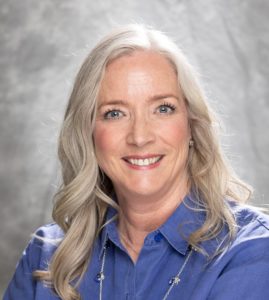 The Arc of the Central Mountains recently opened their doors to support people through advocacy, outreach, and policy in a rural area of the Colorado mountains. They immediately found themselves in court supporting some of the individuals in their community. One of these cases evolved into providing supports for a young adult who was facing multiple felony charges for stalking and who was in the middle of reapplying for DACA status. The work of The Arc of the Central Mountains has resulted in the creation of a truly community-based support system for this young man, while at the same time building a relationship with a local judicial system, resulting in his four cases being dismissed. In this interview, The Arc of the Central Mountains’s Executive Director Jill Pidcock talks about the about the work the organization is doing and how they are making a positive impact in their community.
The Arc of the Central Mountains recently opened their doors to support people through advocacy, outreach, and policy in a rural area of the Colorado mountains. They immediately found themselves in court supporting some of the individuals in their community. One of these cases evolved into providing supports for a young adult who was facing multiple felony charges for stalking and who was in the middle of reapplying for DACA status. The work of The Arc of the Central Mountains has resulted in the creation of a truly community-based support system for this young man, while at the same time building a relationship with a local judicial system, resulting in his four cases being dismissed. In this interview, The Arc of the Central Mountains’s Executive Director Jill Pidcock talks about the about the work the organization is doing and how they are making a positive impact in their community.